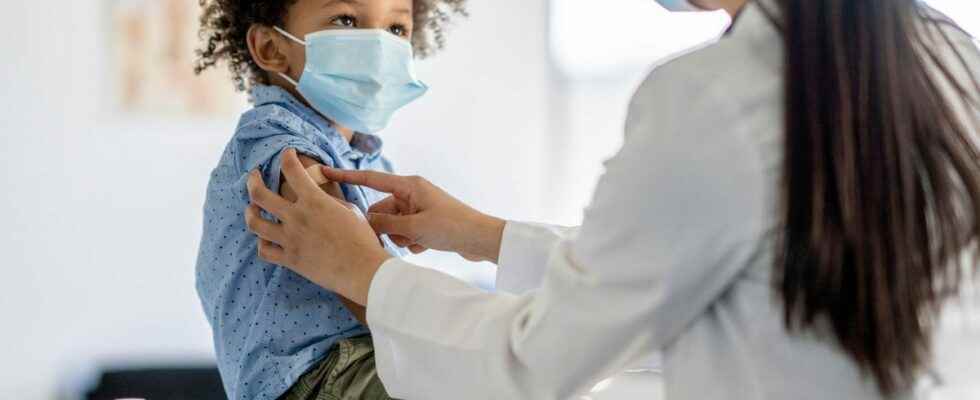Posted ,
Reading 2 mins.
The United States is the first country to authorize messenger RNA vaccines for children aged 6 months to 5 years. Injections are now authorized for this age group, while parents remain divided on the interest of having their child (ren) vaccinated or not. The opinion of Dr Gérald Kierzek, medical director of Doctissimo.
It’s official: messenger RNA vaccines from Pfizer – BioNTech and Moderna laboratories, in smaller doses, are now available to vaccinate the 17 million American children aged between 6 months and 5 years.
Indeed, the two vaccines were approved by the Food and Drug Administration (FDA) and the Centers for Disease Control and Prevention (CDC) last week and their administration to children began this week. A news welcomed by Joe Biden, the President of the United States, specifying that they were for the moment the “only country in the world” to offer the vaccine for this age category.
Two doses for Moderna, three for Pfizer
Vaccination against Covid-19 for children is therefore launched in the land of Uncle Sam. Moderna’s Covid-19 vaccine is authorized for children aged 6 months to 5 years, Pfizer’s is intended for children aged 6 months at 4 years old.
The Moderna vaccine vaccination schedule is considered complete with two 25-microgram doses given one month apart. With Pfizer, it will take three doses for the regimen to be complete.
One-tenth the adult dose
Initially, the laboratory attempted to develop an effective vaccine in just two doses, but trial results showed that after the second dose, the vaccine did not generate enough immune response.
The three-dose vaccine authorized last week is one-tenth the size of Pfizer’s adult dose. The first two injections are given three weeks apart. The third dose can be injected at least eight weeks after the second. In total, therefore, it can take nearly three months for the child to have a complete vaccination schedule.
Some side effects
After the first injections, especially at the time of clinical studies, minor side effects were reported by researchers. Fever, redness and pain at the injection site, tiredness or drowsiness have been commonly reported. Just like irritability, in some children, loss of appetite, headaches, abdominal pain, enlarged lymph nodes, mild diarrhea or vomiting.
However, the scientists want to be reassuring and recall that all these undesirable effects quickly disappeared.
Consult a GP online
Towards child vaccination in France?
Vaccination of children in a generalized way is not on the agenda in France.
Asked about the question of the relevance of having his child vaccinated against Covid-19, Dr. Gérald Kierzek, emergency doctor and medical director of Doctissimo, is doubtful.
“We cannot compare what is happening in the United States with France. There, on the one hand, there is a higher proportion of children with obesity or overweight, which is a comorbidity for Covid-19. There is therefore an interest in vaccinating these children. In France, there is no reason to vaccinate children massively. On the other hand, for children with a pathology or presenting any comorbidity, there yes a discussion with the pediatrician must be started in order to discuss the interest of vaccinating the child and to do it if necessary. This must be done on a case-by-case basis”.
